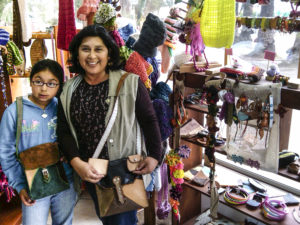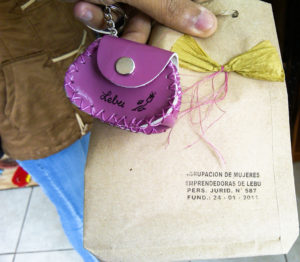While the Grameen Bank gave SKI Charities its infrastructural model, the main impetus behind creating the organization was very personal. SKI Charities founder, Shyam K. Iyer, credits his mother for inspiring him to make the charity a reality:
“In her family, my mother is 8 of 9 kids and the older girls were just sort of married off. We have a term in much of the developing world, not ‘getting your daughter married,’ but ‘getting her married off.’ To have her become someone else’s responsibility, and be led by someone else.
By the time the family got to my mom, number 8, and her sister, number 9, the family was so exhausted with the traditions that they just let them do whatever they wanted. And when you give women like them space to do what they are capable of doing, they do great things. My mother studied hard, came to the U.S., and is now a very successful physician. She’s a role model for the community and inspiring the people all around her. I feel that if women are given this type of chance, not given an extra opportunity, just simply given a chance, women have always proven they can do great things with it.”
Through his work and travels abroad, Shyam became very sensitive to imbalances in economic status, the divide between the haves and the have-nots, and particularly the struggles of mothers. He continually observed that, in many countries, “mothers are the pillars of both family and economy but are even more disenfranchised than poor men.” These patterns were begging to be changed.
Choosing to work with female participants came from the belief that, “When you empower women and especially mothers you’re truly empowering the entire community, you’re not just empowering the individual.” Shyam tells men who inquire about the organization to “observe what women do, what our mothers, sisters and daughters do. They add to the community. They lead our families. They make our lives so much better.” Ultimately, Shyam reasons that “if you want the wealth to go further, usually the best way is through women.” He continues,
“So when any mother is empowered, when she starts to take charge, what will she do? She will grow her business, hire more people, and support more vendors. When she makes money she will emphasize her kids’ education, which of course increases the human capital of a society and is the single most important thing. She’ll also tithe more consistently to her church, strengthening the community. She will herself become more respected and be a leader to all. She will inspire her sons and daughters, encouraging these same effects on a bigger scale.”
He witnessed his own mother have a successful career and inspire so many when she was given the space to do so and hopes that in giving mothers a chance – just a chance – they will do great things. So far, this method has proven to be largely effective, with the benefits extending well beyond a single SKI Charities beneficiary. Shyam could not be more proud of the charity’s mothers, as they have not only improved their personal quality of life, but also the lives of their children, husbands, and communities at large. Just like all of our mothers, everywhere in the world. Happy Mother’s day!



